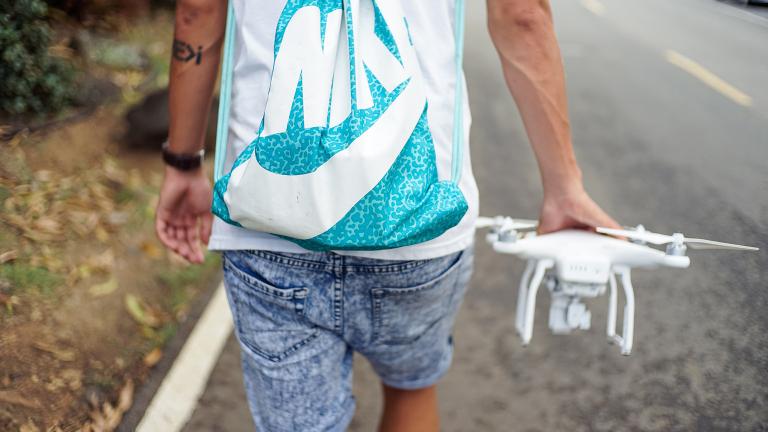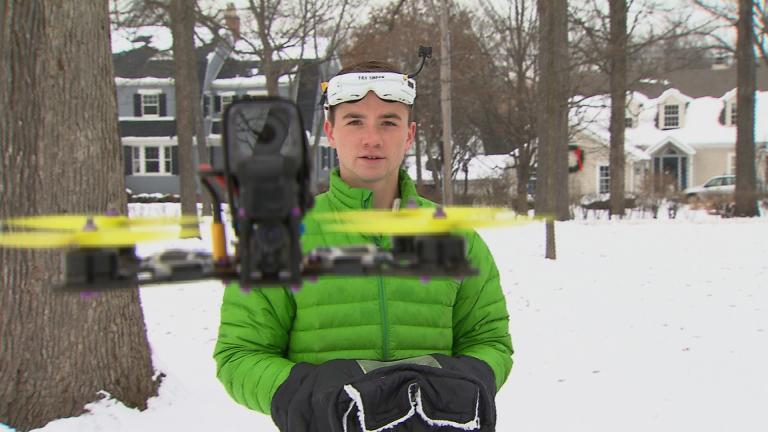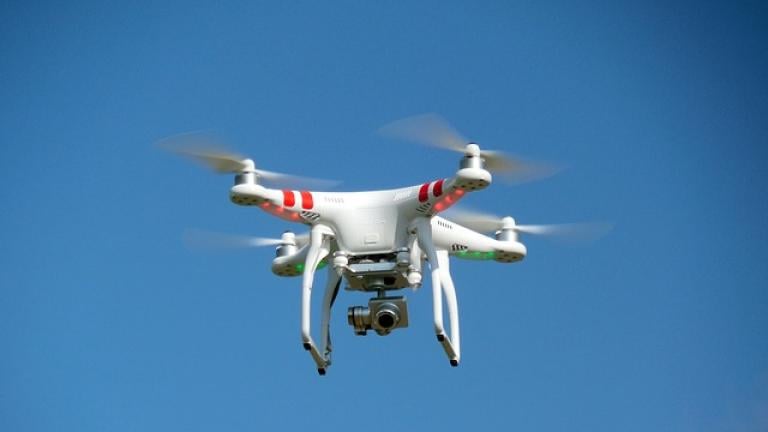The use of drones for missile attacks overseas has been the subject of a lot of controversy. Now, lawmakers in Illinois are debating the use of domestic drones. Would they be a positive development for public safety, or an Orwellian tool for constant surveillance?
While no government agency in Illinois currently operates drones, legislation that restricts their use has already passed the Illinois Senate.
They can have the wingspan of a 737 airplane, or be as small as a remote control toy. Drones, also known as Unmanned Aerial Vehicles, are popping up across the country. Those used by government agencies operate with some restrictions by the Federal Aviation Administration (FAA).
“It has to be a certified pilot manning the UAV but also a spotter to watch the aircraft as it moves through the airspace to make sure it doesn't bump into anything,” said Don Zoufal, a safety and security expert, and a lecturer on defense systems at the University of Chicago.
Zoufal says there are practical public safety uses for drones, like search and rescue missions or situations that might endanger first responders.
“Take a hazardous chemical spill or train derailment, you want to be able to track the smoke plume, see which way the wind is blowing the hazardous chemicals so you can guide your first responders to the scene,” he said. “If someone is lost in the woods, you can send that up and cover much more ground and territory. You're operating at a much higher altitude.”
But civil libertarians worry that the use of drones could lead to a constant state of surveillance. While mounted security cameras track you in a set location, drones can follow you wherever you go.
“What these drones allow for is an incredible amount of surveillance to take place in a secretive way over a pretty extended period of time. Sometimes, for hours on end, these things can be in the air,” said Ed Yohnka, director of Communications and Public Policy for the American Civil Liberties Union of Illinois (ACLU). “What we have proposed is simply the notion that we ought to put guidelines on how these are used and when these can be used without a warrant.”
Illinois Sen. Daniel Biss is the main sponsor of the Freedom from Drone Surveillance Act. It would require any public agency to get a warrant before using a drone, with some exceptions.
“There is a terrorism exception, there is an exception to save someone's life if law enforcement believes they are in danger, there is an exception for a search for a missing person, and there is an exception for crime scene photography,” said Biss. “But what we envision is that the prime use of the drone would only be in situations where a search warrant has been granted by a judge.”
But Zoufal says there's no expectation of privacy for citizens in public areas, and to subject drones to such restrictions could inhibit an investigation.
“If this same information were gathered by a piloted helicopter, none of these rules would apply,” said Zoufal. “I don't understand why it should rest on whether or not the platform that captures that data has a pilot onboard or one standing on the ground controlling it.”
But the drone surveillance legislation is also notable for what it does not contain. The original drone bill called for a provision that would have banned weapons on unmanned drones. However, that was taken out at the last minute.
“I personally think that there should not be weapons on drones,” Biss said. “I don't think it’s an appropriate thing for local law enforcement agencies to use, but to make a simple, clear argument about privacy, we narrowed the bill so it was exclusively about what circumstances a local enforcement entity can use a drone for surveillance.”
“For the size of these UAV's, I don't think it’s practical that anyone would put a weapon on it,” said Zoufal. “I've never even heard a law enforcement agency consider it. I think it’s a non-issue.”
But Biss says that whether or not this bill passes, there will be many more issues surrounding drones that lawmakers will have to address.
“Should you be able to allow a drone to fly over your backyard and see if your fence is meeting the municipal code? What about private entities with drones? What about corporations using drones to spy on other corporations?” he said.
While this bill regulates the government's use of drones, there are currently few rules for private use, something all citizens may want to ponder as drones begin to take flight.
Biss says he plans to introduce legislation next year that would deal with the more comprehensive issues regarding drone usage. Currently, any public agency that wants to use a drone must get approval from the FAA.







